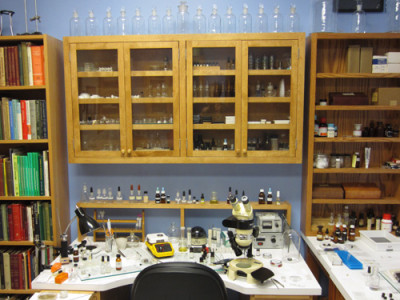Microchemical Methods
The value of microchemical tests skillfully applied and intelligently interpreted cannot be overemphasized in the study of the chemical constitution of microtraces. Such tests are capable of rapidly and unequivocally establishing the elemental or chemical composition of particulate evidence without regard to its nature (i.e. organic or inorganic, simple or complex). Although it is usually impractical, and often unnecessary to conduct a complete microchemical analysis of all single small particles of evidence, an adequate optical examination will normally narrow the possibilities to such an extent that only one, or at most, a few microchemical tests need be performed, and then often only to confirm the preliminary identification.
Microchemical tests also show their value in the fully equipped laboratory. In inorganic analysis they allow identification of valence state and chemical compounds or functional groups that are not possible to obtain from an X-ray or infrared spectrum. They also permit identification of elements that are not detectable by electron microanalysis (e.g., boron, beryllium, lithium) and permit one to distinguish between certain acid radicals (e.g., nitrate and nitrites). In the realm of organic traces, they can help clarify ambiguous infrared spectra and identify the major components of “messy deposits.” Microchemical techniques can also be used to isolate and fractionate traces so that an infrared spectrum (or other instrumental analysis) of a relatively pure component may be obtained. The degree to which microchemical tests will be utilized in any laboratory, nonetheless, will be determined by the training and experience of the laboratory personnel and the instruments that are available.
Microchemical tests may be conveniently classified into four groups based on the nature of the substance to be tested and the information desired.
1. Tests for inorganic ions (cations and anions)
2. Tests for organic functional groups
3. Tests for specific organic compounds
4. Tests for complex substances
How May We Help You?
Contact usto discuss your project in more detail.








